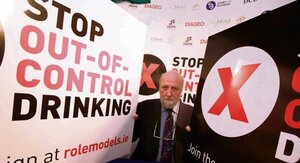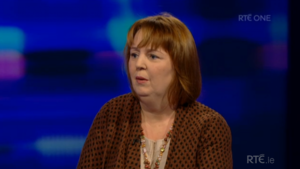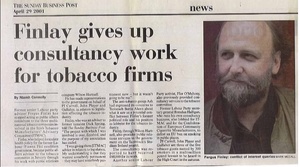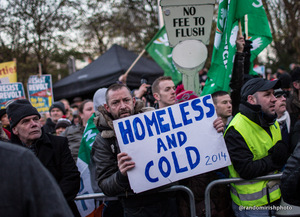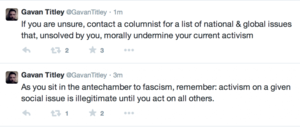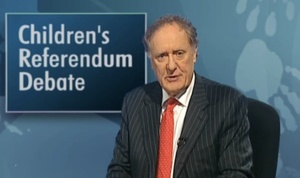
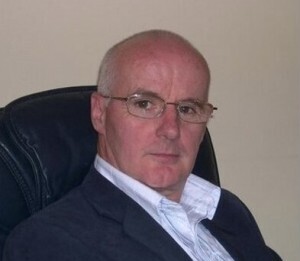 From top: Fergus Finlay, chief executive of Barnardo’s Ireland and a HSE Board member; Anthony Sheridan
From top: Fergus Finlay, chief executive of Barnardo’s Ireland and a HSE Board member; Anthony Sheridan
HSE board member and Irish Examiner columnist Fergus Finlay is so strongly in favour of the current arrangement for building the National Maternity Hospital that he took the unusual step of breaking board confidentiality rules to support the Government’s plan for the project.
In a column last week he clearly stated where he stands on the issue, writing:
‘Here’s my bottom line. As a citizen, campaigner, and advocate; as a husband; as the father and grandfather of women and girls; there are simply no circumstances under which I would support the development of a new national maternity hospital in Ireland that was influenced by anything — anything — other than the public interest and the interests of women.’
He then went on to outline the enormous amount of work he and his colleagues on the audit and risk committee put into checking every aspect of the deal to ensure that nothing was left to chance. He stated:
‘We devoted many, many hours, over many months…examining and analysing the huge set of documents that had been developed to give legal underpinning to the project. We worked with senior management colleagues and had the benefit of legal advice at every stage.’
Given all that, it would be reasonable to assume that Mr. Finlay is familiar with all aspects of the project and would have no difficulty in answering questions put by those who are deeply concerned about the entire project.
Such an assumption would be badly mistaken.
During a discussion on RTÉ Radio with Prof. Louise Kenny, who has serious question on the issue, Finlay was unable to answer even the most basic questions.
For example: Why is St. Vincent’s so determined to hold on to ownership of the site?
Finlay replied:
“Well, you would need to ask them that but I would hazard a guess: I think they see it as a great act of generosity and they don’t understand why they should be asked to go further. The rest of the world would like them to gift the land to the state, but they haven’t.”
St. Vincent’s have claimed that ownership of the land is required in order to facilitate integrated care.
Prof. Kenny refutes this. It doesn’t stack up, she said. There are many hospitals across the UK and Europe where the leasehold has no effect whatsoever on care integration.
Incredibly, Finlay agreed, contradicting his core claim that everything has been checked, that months of forensic investigation with the best legal minds has answered all the questions:
“I think you can work out arrangements for integrated care without owning the land…I don’t think that’s a good reason. My hunch is that it’s about tradition, it’s about history, it’s about pride in their own ownership.”
So here we have a member of the HSE board, the authority that will decide whether the project proceeds or not, guessing and expressing hunches surrounding the most fundamental questions being asked by those who are deeply worried about the consequences if the project is allowed to proceed in its present form.
Finlay was equally befuddled when asked about the worrying inclusion of the term ‘clinically appropriate’ in the contract. Kenny said the term was incredibly vague and open to interpretation. It could mean a doctor having the power to override the wishes of a woman seeking a particular service.
He said:
“I think that phrase has been misinterpreted and I wish to god we could find a better phrase that wouldn’t be open to misinterpretation.”
When asked if lawyers should come up with a better phrase Finlay did a lot of muttering before lamely concluding with the by now standard excuse of those defending the project – it would involve further delay.
In addition to his ignorance of the facts Finlay’s attitude was also patronising and insulting, not just to Prof. Kenny but to all those who have genuine worries about the Byzantine conditions surrounding this project.
Effectively accusing Prof. Kenny of being a conspiracist, he asked:
“Is it that you really believe that somewhere in the background there’s someone waiting to leap out and say ‘we gotcha now‘?”
Clearly Finlay is either unaware of or unconcerned about a number of clauses in the contract. For example, the strong possibility that the apparent generous €10 per annum rent could mushroom into an astonishing €850,000 per annum if certain conditions are not adhered to.
Given the shady and convoluted shenanigans surrounding this whole deal, only the most naïve would believe that it will not eventually turn into a very, very expensive ‘gotcha’ trap for Irish taxpayers.
Anthony Sheridan is a freelance journalist and blogs at Back Garden Philosophy
Earlier: Boylan Point







